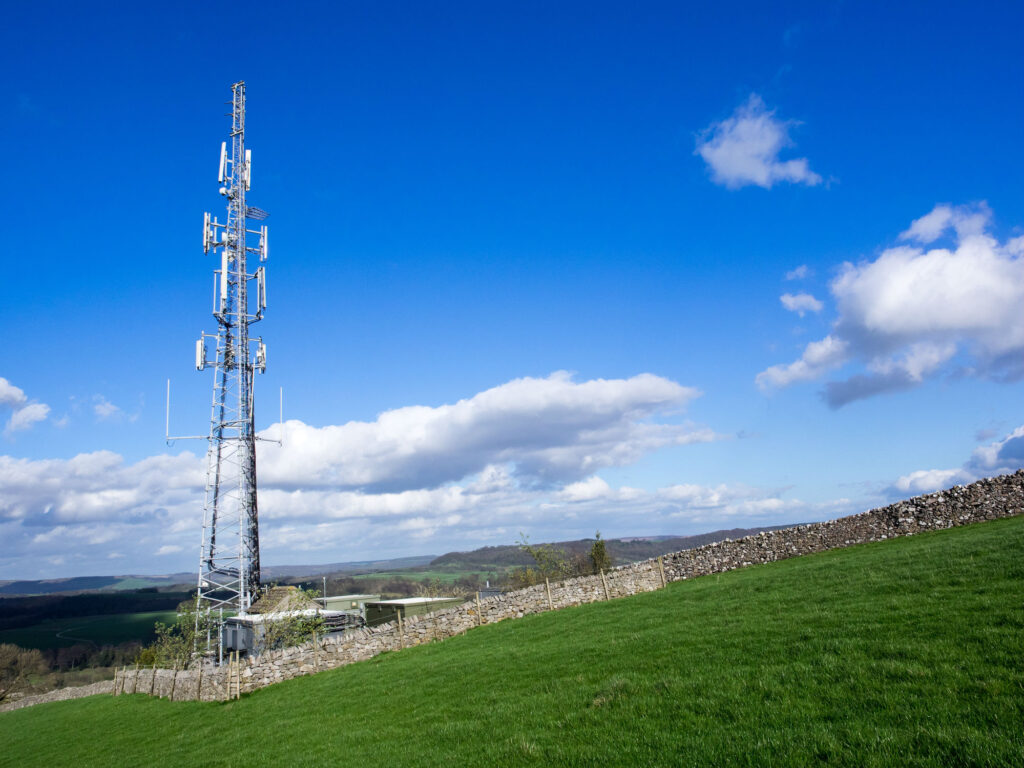The Electronic Communications Code (“Code”) has now been operational for over 12 months, forming part of the Digital Economy Act 2017. The revised Code was introduced to provide a range of measures to make it easier to allow network operators to roll-out infrastructure on both public and private land. This Code now applies to all new sites as well as any existing new sites being renewed.
In January 2019, The National Assembly for Wales published the ‘Mobile Action Plan Update’ as a follow up to the Welsh Government’s Mobile Action Plan in October 2017, providing a list of actions to take forward with the task of increasing coverage in Wales.
According to this report, mobile coverage in Wales has increased by 28% since June 2017, reaching 56%.
One of the recommendations made in this report was to allow masts up to 30m in height to be regarded as “permitted development”. Today, the Welsh Government have confirmed a change in the permitted development rules. From April 2019, Telecoms masts can be erected under permitted development rights up to 25 meters in height, an increase of 10 meters in line with England & Scotland.
We are disappointed that there is no reference to the part farmers and landowners play in facilitating this this roll-out. We regard farmers and landowners as being the key stake holder in this process, with their contribution often not only being the availability of land, but also their important assistance in the achievement of planning consent. The farmers are often not credited for their work in this regard and unfortunately (as of late), our experience is that operators are forcing a situation their pursuance of increased mobile coverage is coming at the farmers cost.
There is a trend of operators being opportunistic, relying less on what two parties may reasonably agree for lease terms, and relying more on forcing agreement on landowners. The operators have been willing in some instances to allow farmers to help with planning whilst incentivizing them with terms that are agreed on an open basis, and then reducing the rental offerings (in some instances) by over 95% after the operator has secured the assistance of the farmers to secure the consents they need to progress the development of the site. This is not what the Code had intended and paradoxically will only serve to slow mobile coverage down if this type of behavior goes unchallenged.
There is also evidence that the introduction of the Code has prompted operators to switch temporary masts off in some areas after that coverage has been relied upon, such that this artificially boosts the demand for permanent sites in the locality which are then procured at a fraction of the costs associated with the temporary masts.
We as a rural surveying practice located within the Snowdonia National Park, have represented numerous clients in negotiating the ‘deal’ between the Landowner (“Landlord”) and the Operator (“Tenant”) both pre and post the introduction of the Code. Telecommunications sites are still an opportunity for landowners but with new legislation the landscape has changed quite literally and for the moment it is perhaps for the worse.
How we can help
Professional Advice and Representation– Landowners being approached by site operators should seek professional advice immediately. Reasonable Legal and Professional Fees are normally covered by the Site Operators, therefore our service is free to the landowner.
Negotiating the best outcome for our clients– We are experienced in representing your needs and ensuring that the best possible outcome is achieved for the client when negotiating Heads of Terms.
Take time to understand the implications– We understand that decisions should be made after considering the full wider picture. We will ensure that you have the information advice and full support required to make an informative decision.
Farm management advice– We can provide advice on wider farm management relating to the telecommunication premises, such as such as advising on Basic Payment Scheme, potential tax implications and preparing damage and compensation claims.







